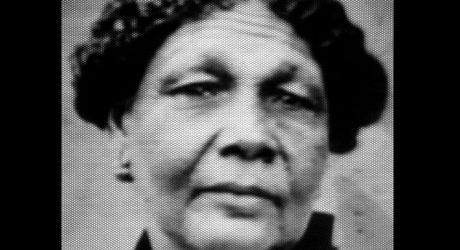From the time plans were mooted to erect a statue to Britain’s most famous black nurse, the project has been embroiled in a storm of controversy.
Now, with the unveiling of the £500,000 bronze honouring the memory of Jamaican-born Mary Seacole just days away, the opposition has ratcheted up, particularly among Florence Nightingale fans who claim it is a “history hoax” because all she did was “sell wine and sandwiches” in Crimea.
The first public memorial to celebrate the black pioneer nurse will be taller than Florence Nightingale’s statue in Pall Mall, as well as that of famous fellow nurse Edith Cavell, located off Trafalgar Square.
Equally disturbing to Nightingale fans, the Seacole statue will occupy a prominent position at St Thomas Hospital where Nightingale, the revered “lady with the lamp,” founded her nursing school, and to which the Jamaican nurse reportedly had no connection.
On Monday, Nightingale’s biographer Mark Bostridge wrote in a letter to The Times: “Mrs Seacole’s [Crimean War] battlefield excursions – three only, she missed the major ones – took place post-battle, after selling wine and sandwiches to spectators.
“Mrs Seacole was a kind and generous businesswoman, but was not a frequenter of the battlefield ‘under fire’ or a pioneer of nursing.
“We would gladly support a Seacole statue, to honour her for her own work and not at Nightingale’s hospital.”
Referring to the so-called “history hoax,” Bostridge added: “We regret that such a campaign of misinformation should have succeeded, noting that false achievements were used at all stages of the promotion.”
Former Labour MP Baron Soley countered that the anger from Nightingale supporters was “frustrating and sad.”
“Florence Nightingale will not be undermined by this statue,” he said. “As we all know, she created modern nursing, her international reputation will not be affected at all.
“It is not one versus the other. These are two different women, in different roles who made different contributions.
“Frankly, we don’t know exactly which battlefields she [Seacole] went out on and when, but there is strong evidence that she went out after battles and helped patch people up,” Soley added.
Many historians are nevertheless uneasy about the statue, amid claims that the adulation of Seacole has gone too far.
They maintain that her achievements have been oversold for political reasons and to create positive black role models.
William Curtis of the Crimean War Research Society was quoted by the Daily Mail as saying: “The hype that has been built up surrounding this otherwise worthy woman is a disgrace to the serious study of history.”
Curtis went on to describe the teaching of some of the stories about Seacole as being “irresponsible” and “certainly not history.”
Meanwhile, Major Colin Robins, a Fellow of the Historical Society, wrote a paper for an academic journal stating that Seacole is the “subject of many myths,” and arguing that numerous “facts” concerning Mary Seacole are simply untrue.
Myth or not, Mary Seacole is said to have saved the lives of countless wounded soldiers in Crimea and nursed them back to health in a clinic she paid for out of her own pocket.
Seacole’s story was largely overlooked after her death in 1881, but for the past 15 years, her reputation and exploits have undergone “a remarkable rehabilitation,” according to the Daily Mail.
Every British schoolchild is taught about her achievements and numerous schools, hospitals and universities have rooms or buildings named after her.
Born in Kingston in 1805, Seacole was the daughter of a white Scottish officer and a creole woman, from whom she learned her nursing skills.
In her early 20s she married a Jamaican merchant, Edwin Seacole, and travelled with him around the Caribbean, Central America and England until his death in 1844.
The widowed Seacole, who never remarried, then set up a hotel in the town of Cruces in Panama, where she is reputed to have treated cholera victims.
With the outbreak of the Crimean War later that year, Seacole was reportedly determined to offer her nursing services to the British, and, when she was turned down by the authorities, she paid her way to the peninsula out of her own pocket.
On arrival in the Crimea, she is said to have tried to work for Florence Nightingale, who reportedly rejected her.
Undaunted, she established her “British Hotel,” which was reportedly part boarding house, part medical centre, and from where she sold alcohol, meals, and ran a daily clinic, as well as tending to the sick on the battlefield.
For her contribution she is said to have been awarded the Crimea Medal, although her name does not appear on any of the official records of those so honoured.
When the war was over, Seacole returned to Britain where she died in obscurity in 1881 at the age of 76.
Read more: http://www.caribbean360.com/news/row-escalates-erection-black-jamaican-nurses-statue-london-hospital#ixzz4CR1DYWyO














